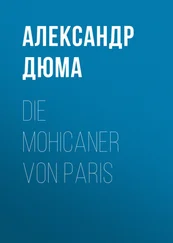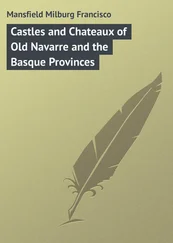Milburg Mansfield - Dumas' Paris
Здесь есть возможность читать онлайн «Milburg Mansfield - Dumas' Paris» — ознакомительный отрывок электронной книги совершенно бесплатно, а после прочтения отрывка купить полную версию. В некоторых случаях можно слушать аудио, скачать через торрент в формате fb2 и присутствует краткое содержание. Издательство: Иностранный паблик, Жанр: foreign_prose, Путешествия и география, на английском языке. Описание произведения, (предисловие) а так же отзывы посетителей доступны на портале библиотеки ЛибКат.
- Название:Dumas' Paris
- Автор:
- Издательство:Иностранный паблик
- Жанр:
- Год:неизвестен
- ISBN:нет данных
- Рейтинг книги:4 / 5. Голосов: 1
-
Избранное:Добавить в избранное
- Отзывы:
-
Ваша оценка:
- 80
- 1
- 2
- 3
- 4
- 5
Dumas' Paris: краткое содержание, описание и аннотация
Предлагаем к чтению аннотацию, описание, краткое содержание или предисловие (зависит от того, что написал сам автор книги «Dumas' Paris»). Если вы не нашли необходимую информацию о книге — напишите в комментариях, мы постараемся отыскать её.
Dumas' Paris — читать онлайн ознакомительный отрывок
Ниже представлен текст книги, разбитый по страницам. Система сохранения места последней прочитанной страницы, позволяет с удобством читать онлайн бесплатно книгу «Dumas' Paris», без необходимости каждый раз заново искать на чём Вы остановились. Поставьте закладку, и сможете в любой момент перейти на страницу, на которой закончили чтение.
Интервал:
Закладка:
All his life Dumas devotedly admired the sentiment and fancies which foregathered in this forest, whose very trees and stones he knew so well. From his “Mémoires” we learn of his indignation at the destruction of its trees and much of its natural beauty. He says:
“This park, planted by François I., was cut down by Louis-Philippe. Trees, under whose shade once reclined François I. and Madame d’Etampes, Henri II. and Diane de Poitiers, Henri IV. and Gabrielle d’Estrées – you would have believed that a Bourbon would have respected you. But over and above your inestimable value of poetry and memories, you had, unhappily, a material value. You beautiful beeches with your polished silvery cases! you beautiful oaks with your sombre wrinkled bark! – you were worth a hundred thousand crowns. The King of France, who, with his six millions of private revenue, was too poor to keep you – the King of France sold you. For my part, had you been my sole possession, I would have preserved you; for, poet as I am, one thing that I would set before all the gold of the earth: the murmur of the wind in your leaves; the shadow that you made to flicker beneath my feet; the visions, the phantoms, which, at eventide, betwixt the day and night, in the doubtful hour of twilight, would glide between your age-long trunks as glide the shadows of the ancient Abencerrages amid the thousand columns of Cordova’s royal mosque.”
What wonder, with these lines before one, that the impressionable Dumas was so taken with the romance of life and so impracticable in other ways.
From the fact that no thorough biography of Dumas exists, it will be difficult to trace the fluctuations of his literary career with preciseness. It is not possible even with the twenty closely packed volumes of the “Mémoires” – themselves incomplete – before one. All that a biographer can get from this treasure-house are facts, – rather radiantly coloured in some respects, but facts nevertheless, – which are put together in a not very coherent or compact form.
They do, to be sure, recount many of the incidents and circumstances attendant upon the writing and publication of many of his works, and because of this they immediately become the best of all sources of supply. It is to be regretted that these “Mémoires” have not been translated, though it is doubtful if any publisher of English works could get his money back from the transaction.
Other clues as to his emotions, and with no uncertain references to incidents of Dumas’ literary career, are found in “Mes Bêtes,” “Ange Pitou,” the “Causeries,” and the “Travels.” These comprise many volumes not yet translated.
Dumas was readily enough received into the folds of the great. Indeed, as we know, he made his entrée under more than ordinary, if not exceptional, circumstances, and his connection with the great names of literature and statecraft extended from Hugo to Garibaldi.
As for his own predilections in literature, Dumas’ own voice is practically silent, though we know that he was a romanticist pure and simple, and drew no inspiration or encouragement from Voltairian sentiments. If not essentially religious, he at least believed in its principles, though, as a warm admirer has said, “He had no liking for the celibate and bookish life of the churchman.”
Dumas does not enter deeply into the subject of ecclesiasticism in France. His most elaborate references are to the Abbey of Ste. Genevieve – since disappeared in favour of the hideous pagan Panthéon – and its relics and associations, in “La Dame de Monsoreau.” Other of the romances from time to time deal with the subject of religion more or less, as was bound to be, considering the times of which he wrote, of Mazarin, Richelieu, De Rohan, and many other churchmen.
Throughout the thirties Dumas was mostly occupied with his plays, the predominant, if not the most sonorous note, being sounded by “Antony.”
As a novelist his star shone brightest in the decade following, commencing with “Monte Cristo,” in 1841, and continuing through “Le Vicomte de Bragelonne” and “La Dame de Monsoreau,” in 1847.
During these strenuous years Dumas produced the flower of his romantic garland – omitting, of course, certain trivial and perhaps unworthy trifles, among which are usually considered, rightly enough, “Le Capitaine Paul” (Paul Jones) and “Jeanne d’Arc.” At this period, however, he produced the charming and exotic “Black Tulip,” which has since come to be a reality. The best of all, though, are admittedly the Mousquetaire cycle, the volumes dealing with the fortunes of the Valois line, and, again, “Monte Cristo.”
By 1830, Dumas, eager, as it were, to experience something of the valiant boisterous spirit of the characters of his romances, had thrown himself heartily into an alliance with the opponents of Louis-Philippe. Orleanist successes, however, left him to fall back upon his pen.
In 1844, having finished “Monte Cristo,” he followed it by “Les Trois Mousquetaires,” and before the end of the same year had put out forty volumes, by what means, those who will read the scurrilous “Fabrique des Romans” – and properly discount it – may learn.
The publication of “Monte Cristo” and “Les Trois Mousquetaires” as newspaper feuilletons , in 1844-45, met with amazing success, and were, indeed, written from day to day, to keep pace with the demands of the press.
Here is, perhaps, an opportune moment to digress into the ethics of the profession of the “literary ghost,” and but for the fact that the subject has been pretty well thrashed out before, – not only with respect to Dumas, but to others as well, – it might justifiably be included here at some length, but shall not be, however.
The busy years from 1840-50 could indeed be “explained” – if one were sure of his facts; but beyond the circumstances, frequently availed of, it is admitted, of Dumas having made use of secretarial assistance in the productions which were ultimately to be fathered by himself, there is little but jealous and spiteful hearsay to lead one to suppose that he made any secret of the fact that he had some very considerable assistance in the production of the seven hundred volumes which, at a late period in his life, he claimed to have produced.
The “ Maquet affaire ,” of course, proclaims the whilom Augustus Mackeat as a collaborateur ; still the ingenuity of Dumas shines forth through the warp and woof in an unmistakable manner, and he who would know more of the pros and cons is referred to the “ Maison Dumas et Cie .”
Maquet was manifestly what we have come to know as a “hack,” though the species is not so very new – nor so very rare. The great libraries are full of them the whole world over, and very useful, though irresponsible and ungrateful persons, many of them have proved to be. Maquet, at any rate, served some sort of a useful purpose, and he certainly was a confidant of the great romancer during these very years, but that his was the mind and hand that evolved or worked out the general plan and detail of the romances is well-nigh impossible to believe, when one has digested both sides of the question.
An English critic of no inconsiderable knowledge has thrown in his lot recently with the claims of Maquet, and given the sole and entire production of “Les Trois Mousquetaires,” “Monte Cristo,” “La Dame de Monsoreau,” and many other of Dumas’ works of this period, to him, placing him, indeed, with Shakespeare, whose plays certain gullible persons believe to have been written by Bacon. The flaw in the theory is apparent when one realizes that the said Maquet was no myth – he was, in fact, a very real person, and a literary personage of a certain ability. It is strange, then, that if he were the producer of, say “Les Trois Mousquetaires,” which was issued ostensibly as the work of Dumas, that he wrote nothing under his own name that was at all comparable therewith; and stranger still, that he was able to repeat this alleged success with “Monte Cristo,” or the rest of the Mousquetaire series, and yet not be able to do the same sort of a feat when playing the game by himself. One instance would not prove this contention, but several are likely to not only give it additional strength, but to practically demonstrate the correct conclusion.
Читать дальшеИнтервал:
Закладка:
Похожие книги на «Dumas' Paris»
Представляем Вашему вниманию похожие книги на «Dumas' Paris» списком для выбора. Мы отобрали схожую по названию и смыслу литературу в надежде предоставить читателям больше вариантов отыскать новые, интересные, ещё непрочитанные произведения.
Обсуждение, отзывы о книге «Dumas' Paris» и просто собственные мнения читателей. Оставьте ваши комментарии, напишите, что Вы думаете о произведении, его смысле или главных героях. Укажите что конкретно понравилось, а что нет, и почему Вы так считаете.












